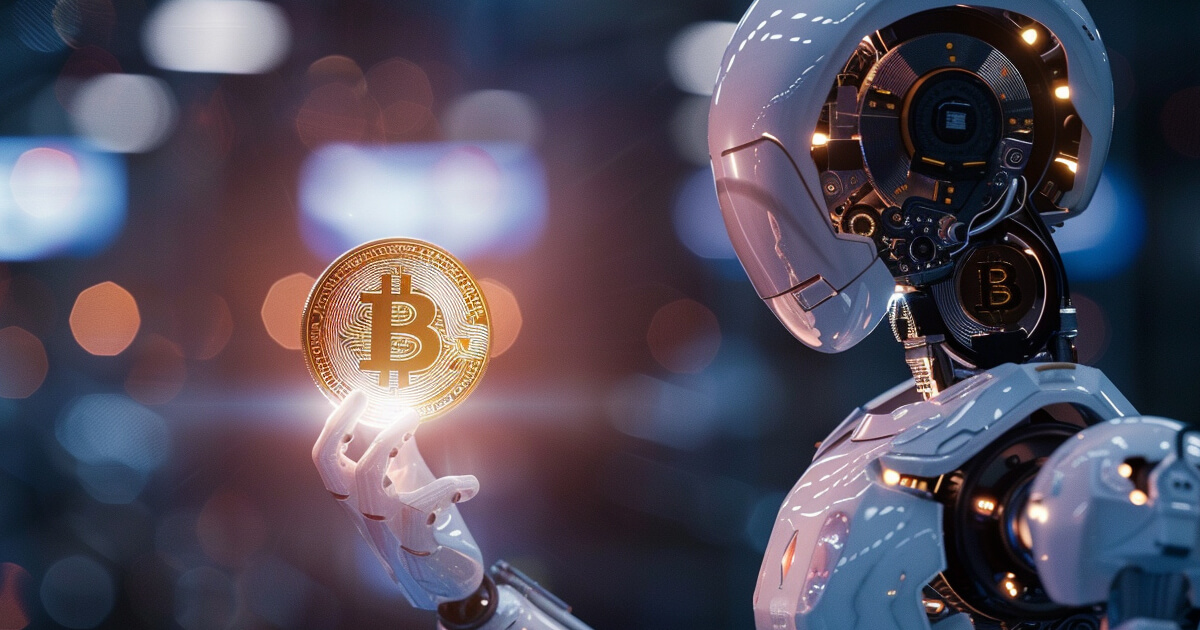The subsequent content has been contributed by Kadan Stadelmann, Chief Technology Officer of Komodo Blockchain.
The altcoin universe is currently buzzing with coins associated with AI crypto projects, ranging from AI Models on Bitcoin to AI training data on a layer 2 blockchain.
This trend mirrors the overall market sentiment, with the prominent stock Nvidia (NVDA.O) capturing attention and propelling AI into the realm of investments.
Nvidia recently achieved the milestone of becoming the seventh public U.S. company valued at over \(1 trillion. By March 2024, it ascended to become the world’s third most valuable company, surpassing a market cap of \)2 trillion. This surge underscores investors’ growing appetite for exposure to machine learning technology, rivaling even the largest corporations globally.
As of now, AI tokens command a market value of \(26.4 billion, a substantial leap from the mere \)2.7 billion recorded last April.
The CoinDesk Indices Computing Index, inclusive of AI-linked tokens, has surged by over 165% in the past year, with trading volumes peaking at $3.8 billion in late February.
While many investors are lured by the potential for price appreciation, AI-linked crypto tokens offer a unique opportunity within the crypto sphere that remains somewhat independent from traditional crypto assets. The value of these tokens is arguably more closely linked to the progress of the AI sector than the broader crypto market.
According to investment manager VanEck, AI crypto revenue could potentially reach an impressive $10.2 billion by 2030, supporting a range of use cases akin to non-AI crypto projects, such as reward tokens, computational infrastructure, data validation, provenance, and more.
Despite the promising outlook, the convergence of AI and blockchain technologies is still in its nascent stages. The eventual impact of this amalgamation on both industries remains uncertain, with Bitcoin Maximalists even speculating that the entire crypto index could plummet to zero.
The potential applications for AI tokens are extensive, spanning from payment solutions and trading models to machine-generated non-fungible tokens and blockchain-driven marketplaces for AI applications.
In theory, blockchain bolsters protocol security through a decentralized and immutable settlement layer.
AI plays a crucial role in real-time risk detection and offers an additional layer of security by monitoring network activities, analyzing historical and provenance data, identifying anomalies, enhancing smart contract efficiency through predictive analytics, and scrutinizing asset conditions and market trends.
Envision a scenario where these groundbreaking technologies collaborate to extract and validate data while managing network loads efficiently.
Blockchain could serve as a public ledger for AI training activities.
AI algorithms enhance threat identification and response, leveraging blockchain’s immutability to fortify security-related data against cyber threats, coupled with a decentralized data management approach.
Once AI-validated information is immutably recorded on the blockchain, it becomes tamper-proof.
Nevertheless, the convergence of AI and blockchain does present certain risks.
Challenges Associated with AI and Blockchain
The global artificial intelligence (AI) resolution adopted by the United Nations General Assembly on March 21 advocates for the promotion of “safe, secure, and trustworthy” AI development.
On March 13, the European Parliament passed the AI Act to establish governance standards within the Union.
Furthermore, the European Commission initiated an inquiry into AI applications.
The executive order issued by the Biden administration in October 2023 highlights the safety and security concerns surrounding AI development.
In a similar vein, India introduced AI regulations in March ahead of the national elections.
Both AI and blockchain, individually and in combination, introduce privacy and security vulnerabilities. The security of AI-blockchain applications, which may potentially handle vast amounts of sensitive data, remains uncertain.
AI necessitates substantial data volumes for learning, prediction, and action, which could progressively include more personal information, thereby heightening privacy risks. Blockchain can mitigate these risks by anonymizing data transactions to safeguard identities through techniques like zero-knowledge proofs, while also establishing an immutable and often public ledger.
Data stored on a public blockchain cannot be altered by any entity, posing a challenge to privacy norms and regulations such as the right to erasure.
The theoretical capability of AI to act on blockchain-secured data without human oversight raises significant concerns regarding consent and privacy.
Promoting Positive Innovation
To harness the potential of blockchain and AI without veering into dystopian scenarios, a foundation of ethical principles and safety standards is imperative to ensure these technologies serve the best interests of humanity and address our most critical needs.
A collaborative effort involving developers, ethicists, and policymakers is essential to establish clear boundaries for AI conduct and data integrity on blockchain networks. Developers must innovate solutions that prioritize privacy and security in this new digital landscape.
Adherence to principles such as transparency, accountability, and inclusivity is crucial to ensure that AI and blockchain systems are developed with a comprehensive understanding of their societal implications.

